5 Biggest Myths to Buying Appliances
August 21st, 2024 | 7 min. read

These are the five biggest problems and myths about buying appliances that could be costing you money—and a lot more in aggravation.
At the end, I’ll share a myth that will undoubtedly attract haters and negative comments once again.
But I’m ready for it.
I never said we’d be popular—just honest.
It’s a little bit humorous, especially at the end.
5 Biggest Myths to Buying Appliances
Myth 1: You need to buy a combo washer and dryer
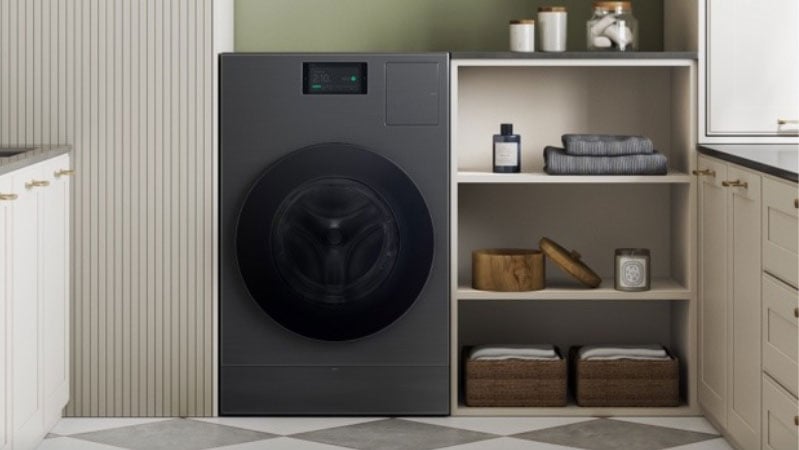
The new combo washers and dryers from GE Profile, LG, and Samsung let you put in dirty clothes and have them washed and dried.
You don’t have to transfer clothes from the washer to the dryer—everything is done in one machine.
It’s ideal for doing laundry before bed or before heading to the office.
These new combos have larger capacities—between 4.8 and 5.3 cubic feet—overshadowing the old 2.4-cubic-foot sizes of the older LG models and other niche combo manufacturers.

They also have bigger lint filters, which in theory should prevent lint from causing service issues, a big problem with older machines.
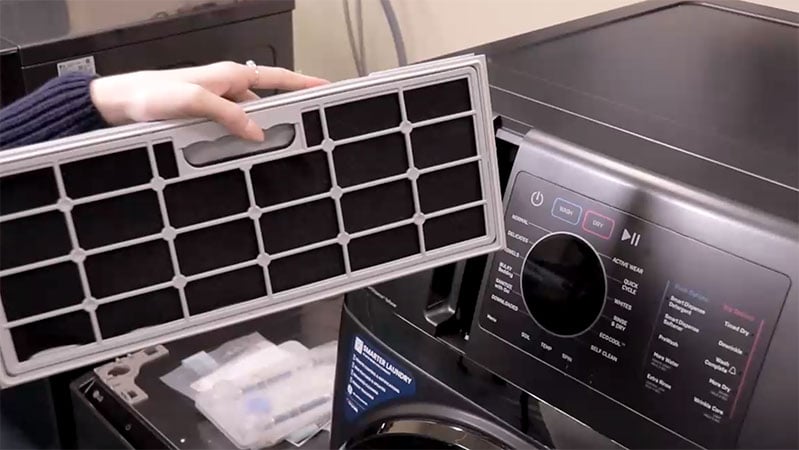
Cons of Buying a Combo Washer & Dryer
However, buying a combo washer and dryer will take longer to do your family’s laundry.
The cycles are longer, and you can’t reload the washer like you can with separate machines.
So, a combo will almost double the time due to the longer cycle and the inability to reload.
Plus, no one knows if those new filters will work over time.
If they don’t, that lint will get into the machine, leading to an expensive, almost impossible service call—just like the old combos.
Speaking of appliances you might not need...
Myth 2: You need to buy a pro range because it’s better

No, you don’t need a professional range for high output anymore.
In fact, this non-professional Café Appliances range has the highest BTU output in a 30-inch size—19,000 BTU under the griddle.

This LG slide-in range has two 20,000 BTU burners in the front, more than Thermador, Miele, Wolf, and many other pro ranges—and at a fraction of the price.
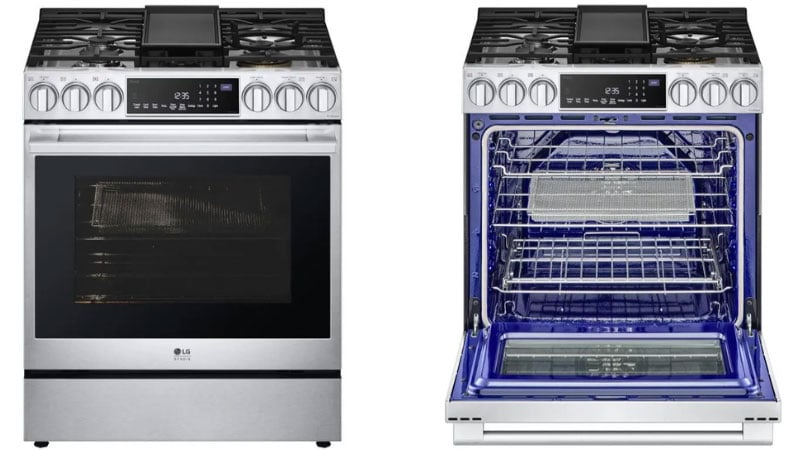
Yes, pro ranges now have more high-output burners, grills, griddles, and French tops in larger sizes.
But if you mostly cook on just two burners, you don’t need to buy a pro range, especially in the regular 30-inch sizes.
Read More: Should You Upgrade to a Professional Range? Pros, Cons, and Expert Tips
Speaking of ranges...
Myth 2.5: Dual fuel is the best range for every type of cooking
Dual fuel means a gas cooktop with an electric oven.
If you walk into any appliance store and ask for the best range, they’ll show you a dual-fuel model without even asking how you cook.
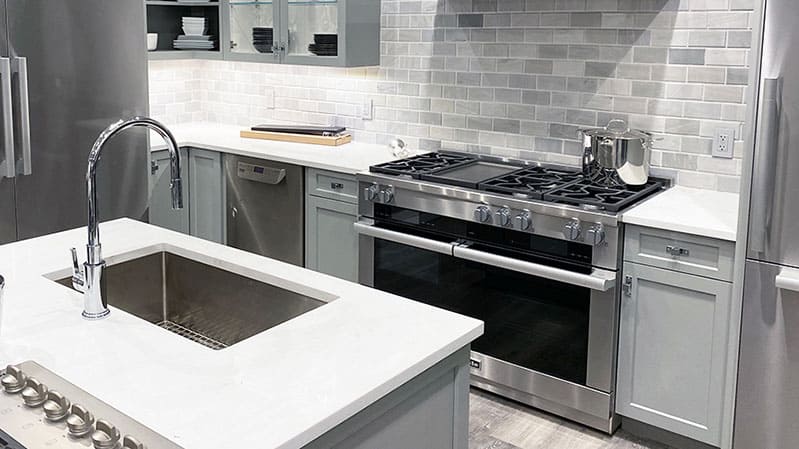
You get the speed of gas and the even heat of an electric oven for better baking—which is somewhat true.
However, if you like to roast, a gas oven is better with its moister, heavier heat.
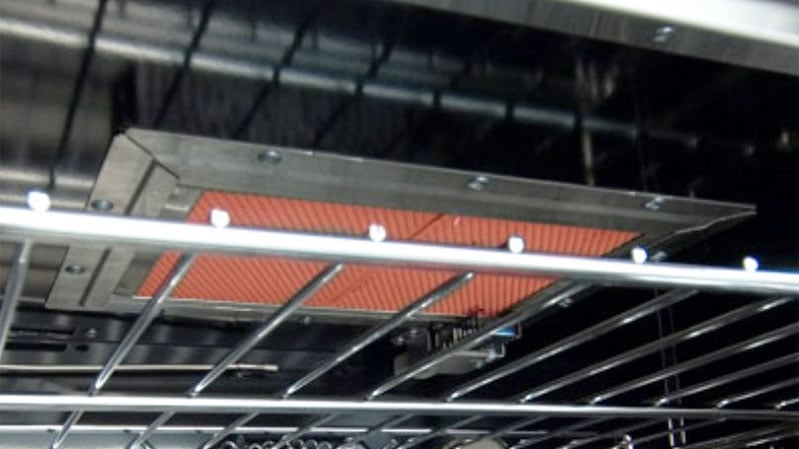
Gas is also far better for broiling, especially with the intense direct heat of infrared burners (Think of those sear elements in expensive Lynx and Hestan pro grills).
Induction Cooking
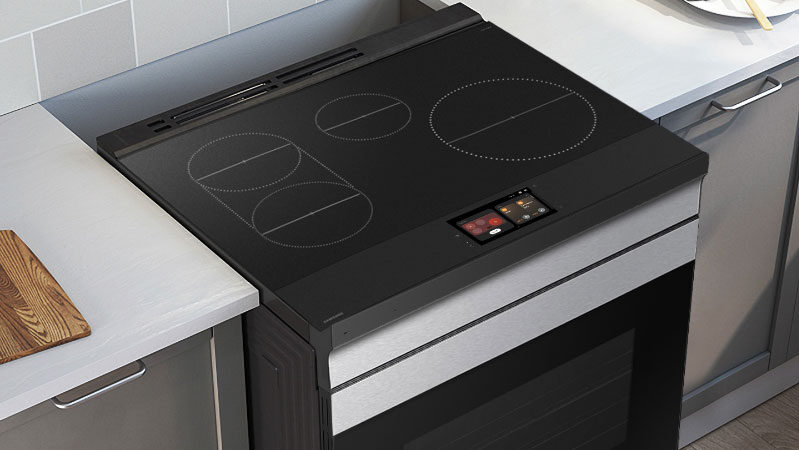
Gas isn’t the fastest anymore.
The magnets in induction burners bypass the glass, so the pan cooks the food directly.
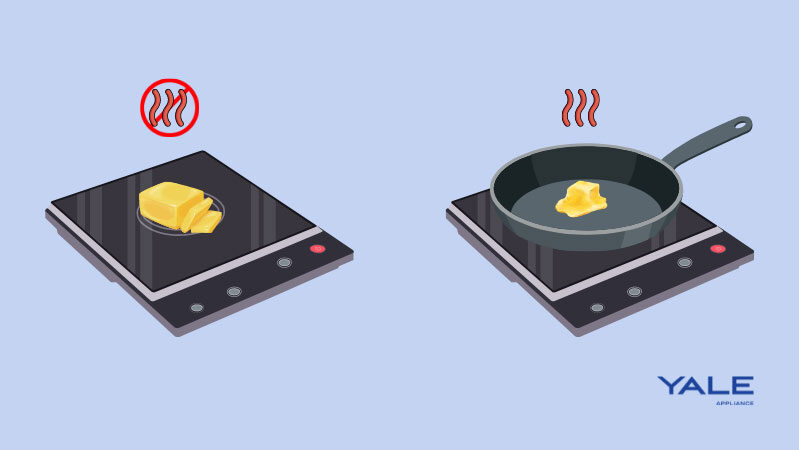
Induction cooking is far faster than even pro gas, with a better low simmer.
It’s easier to clean, easier to vent, and the most child-safe because the burners need to sense metal to turn on and stay on.
Myth 2.75: Professional 36- and 48-inch ranges need to be gas
You’re starting to see more induction ranges in larger sizes, especially 36-inch ranges, from brands like Wolf, Fisher & Paykel, and Viking.
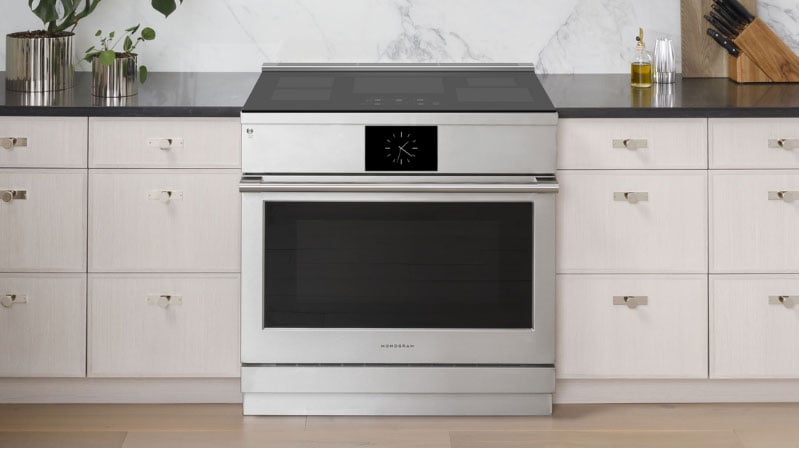
For 48-inch ranges, you’ve got Fisher & Paykel, AGA, and Fulgor Milano, with BlueStar and Wolf introducing their 48-inch ranges in 2025.
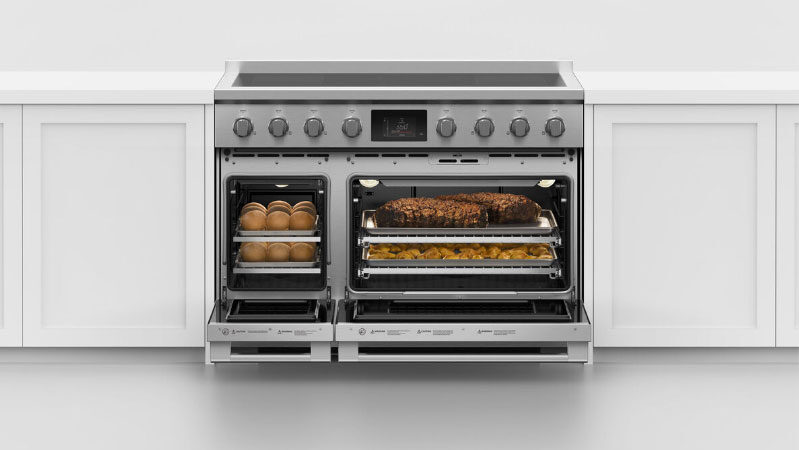
By the way, converting your existing gas stove to electric will cost about $3,000, considering added amps, rewiring, and a new outlet—so budget for that unforeseen expense.
So, don’t default to dual fuel because you may have better options.
Myth 3: Appliances still have supply chain issues
In 2022, I got a thank-you note from a customer after we delivered her speed oven in 18 months—six months earlier than expected.
But that was then.
There are no longer supply chain issues. In fact, it’s quite the opposite.
You can buy almost anything now—Thermador, Sub-Zero, Wolf, Miele—and have it delivered quickly.
Manufacturers ramped up production for the overwhelming demand that no longer exists.
Mortgage rate increases, inflation, and your desire to travel beyond your neighborhood block have all hurt appliance sales.
You don’t need to put deposits on orders far in advance like you did in 2022.
Keep that money in your bank, especially with banks offering 4-5% interest.
Buy during a holiday sale—take your pick: Presidents' Day, July 4th, Labor Day, Black Friday, National Pancake Day, Memorial Day.
These holidays can last weeks, like Black Friday, which runs from Halloween until Cyber Monday, four days after Thanksgiving.
You can save 10-35% or even more now as manufacturers get more desperate.
Combine that with keeping your money in the bank, and that’s serious savings.
(Kidding about National Pancake Day—but it would be awesome).
If you like this content, subscribe to the blog and be the first to get notified and incredibly informed about buying appliances (I do this for a living):
Myth 4: Not considering repair, delivery, and installation
I write most of these articles with a touch of nostalgia, but I want to assure you: delivery, service, and installation are our company’s collective obsession.
Sure, it’s great marketing to offer this while competitors do not, but from my experience, having good delivery, installation, and repair is why people aren’t massively upset with us compared to other appliance stores nationally.
You’re probably comparing brands and features, which is fine.
But not checking reviews of stores—especially for repair—is a mistake.

Miele, Thermador, and Wolf are all great brands, but finding out which services are better is just as important as comparing their features.
Because you’ll need service often in the first year.
I’ll link to blogs with reliability ratings at the end of this article.
Make a few calls before placing your order.
Delivery
Labor shortages have crippled the number of good delivery people.
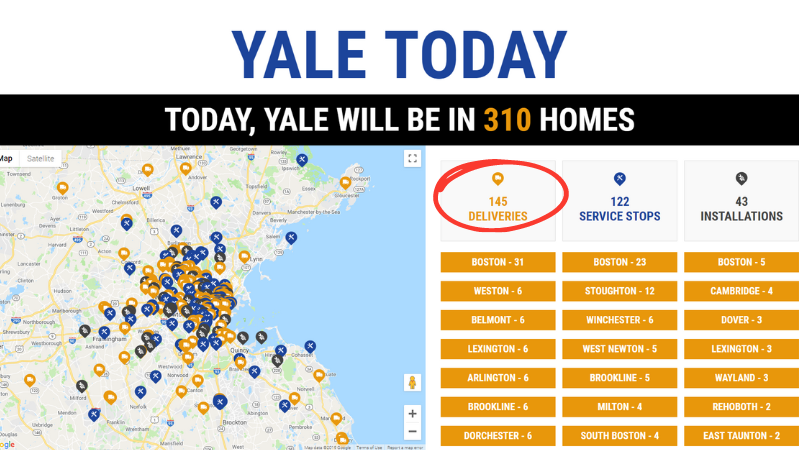
That Sub-Zero refrigerator could weigh over 800 pounds on your new, softer floors.
A delivery person will enter your home with a heavy piece of equipment, install the basics like a washer, dryer, refrigerator, and electric stove, and then remove your old appliances.
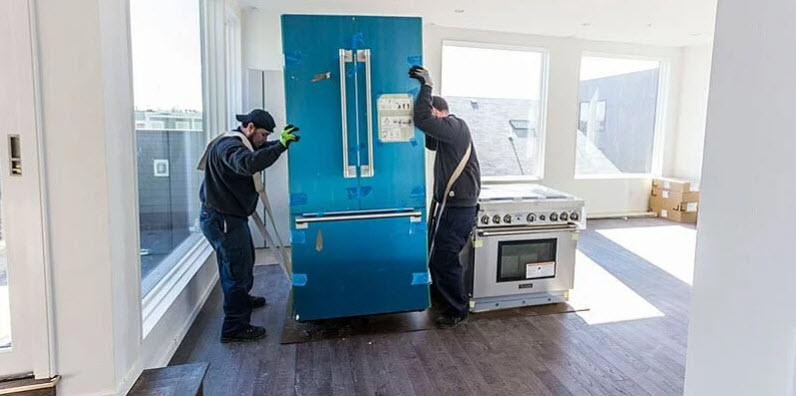
If delivery sounds easy, it isn’t—and it’s the cause of most complaints in this industry, which is saying something.
So check who does it best.

Go to Google Reviews, type in "delivery," and read about how past customers were treated.
Look at deliveries from the last 12 months for any recent improvements or problems.
Installation

Installation is also a challenge for the same reasons as delivery, but worse.
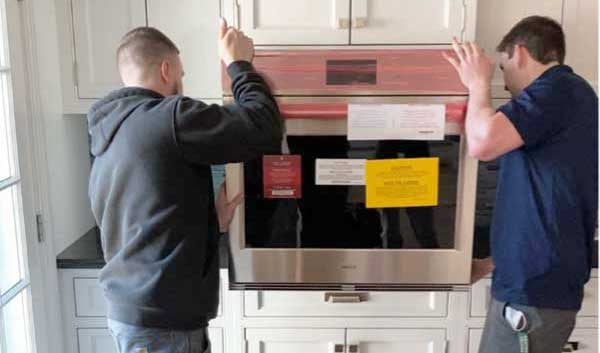
You need someone with carpentry and basic electrical skills—there aren’t many of those types of people out there, and they are sorely needed.
Small Rant
I went to school at Needham High.
Back then, they had an automotive department and a woodshop.
Now, you see less technical and vocational training.
Even with the extreme scarcity, appliance tech training isn’t available in Massachusetts.
Yet, appliances are becoming more technical, with the toughest being refrigerators like these:


The six panels on these refrigerators need to be cut perfectly on perfectly level floors, and the cabinet must be perfectly square.
Builders resist installation, so clarify beforehand who’s responsible—the appliance store, cabinet shop, or contractor. So be prepared.
Thinking everything will go smoothly when buying appliances is the biggest myth—well, the second biggest.
Now for the revelation.
Myth 5: LG and Samsung are the most problematic
It’s all over the internet, so it must be true, right? Wrong.
We logged over 37,000 service calls just last year and over 100,000 in the last three years.
The most reliable appliance you can buy is this LG top load washer—and LG laundry in general:

That said, they do have problems because they’re the two most popular brands sold in the US.
Also, appliances aren’t like shirts or books.
If they’re delivered and installed incorrectly, you’ll have a problem.
I don’t think Samsung or LG has adequate coverage for the staggering number of appliances they sell.
I’d normally end the article here.
However, Samsung corporate doesn’t like these articles and contacted me.
We had a spirited conversation. I respected their passion.
They do try, and the US is a big place to service.
The Director of Samsung offered to give you and any aggrieved Samsung customers his direct line.
His name is Nick Welles, and he can be reached at 201-492-1583.
Hope you have storage in your voicemail, Nick.
5 Biggest Myths to Buying Appliances: Key Takeaways
First, understand you are in control.
You control when you buy and who delivers, installs, and repairs your new appliances.
Unfortunately, you lose that control once the appliances are delivered.
So, I’ll end this article like so many others: Do your research on the appliances, but research just as hard—if not harder—on where you buy.
By the way, here are the most common misconceptions about buying appliances across the internet (my responses are at the end):
Higher Price Means Better Quality: Many believe the most expensive appliance is always the best, but this isn’t always true. Price doesn’t necessarily equate to durability or performance. Many mid-range models offer excellent features and reliability.
- My Take: It depends. I think Sub-Zero is the best refrigerator among the other premium units. However, you can spend far less and still have a good unit.
All Stainless Steel Is the Same: Not all stainless steel finishes are created equal. Some resist fingerprints better, while others might be more durable against scratches.
- My Take: I think this refers more to Black Stainless, which you shouldn’t buy.
Energy Star Certification Guarantees Maximum Efficiency: Energy Star appliances are more efficient than non-certified ones.
- My take: Energy savings depend on usage. Sometimes, the difference between Energy Star and regular appliances is just a few dollars.
Matching Brands Equals Better Performance: Buying all appliances from the same brand might give your kitchen a cohesive look, but it doesn’t guarantee better performance.
- My Take: I prefer to see people match because the rebates can be sizable. However, you should buy what works for you.
Bigger Appliances Are Better: Many consumers think that bigger appliances offer more value, but they can lead to wasted energy and space if they don’t match your needs.
- My Take: I’m not sure of the misconception here. Buy what you will use.
Newer Models Are Always Better: New models may have the latest features, but they can also come with bugs and issues that older, more established models have already ironed out. It’s essential to research and compare new and older models before deciding.
- My Take: Yes, it’s important to do your research. However, newer appliances are rolled out infrequently. I’d always be cautious of new products. Let your neighbor buy the first units, then see if they work. Of course, be mindful that "new" isn’t always that new. Induction is "new," but it was invented in the 1950s. Heat pumps were invented in 1856 but are "new" in full-size dryers.
Thanks for reading! What do you think? Leave your comments or questions below—I’d love to hear from you!
Additional Resources
Download the Yale Appliance Buying Guide covering all topics of appliances. Over 1 million people have read a Yale Guide.
Related Articles:
- The Worst Mistake You Can Make When Buying Appliances
- How to Avoid Common Appliance Buying Mistakes
- Appliances Are Made to Break: Fact or Fiction?
- Finding the Best Appliance Dealers Near You
- Financing Appliances: Is It a Good Deal? Pros and Cons
- Why Doesn’t Every Appliance Brand and Store Offer Service?
Why Should You Trust Us?
It seems that every appliance review has nothing but glowing comments about almost every product, yet you read customer reviews and they are almost universally bad.
We are here to fill in the disconnect. We'll give you the best features, and the drawbacks as well, including reliability based on over 37,000 calls performed by our service team just last year. Our goal is to give you ALL the information so you know what's right for you.
Please consider subscribing or adding to the conversation in the comments below. We appreciate you stopping by.
Steve Sheinkopf is the third-generation CEO of Yale Appliance and a lifelong Bostonian. He has over 38 years of experience in the appliance industry, and he is a trusted source of information for consumers on how to buy and repair appliances.
Steve has also been featured in numerous publications, including the
New York Times,
Consumer Reports,
The Boston Globe,
Bloomberg Radio, the
New York Post,
The Wall Street Journal, and
Entrepreneur, for his knowledge of how to buy appliances and appliance repair.
Steve is passionate about helping consumers find the best appliances for their needs, and he is always happy to answer questions and provide advice. He is a valuable resource for consumers who are looking for information on appliance buying, repair, and maintenance.
Despite being the worst goalie in history, Steve is a fan of the Bruins and college hockey, loves to read, and is a Peloton biker. The love of his life is his daughter, Sophie.
A Note About Pricing
Pricing on this blog is for reference only and may include time sensitive rebates. We make every attempt to provide accurate pricing at time of publishing. Please call the stores for most accurate price.
Topics:


